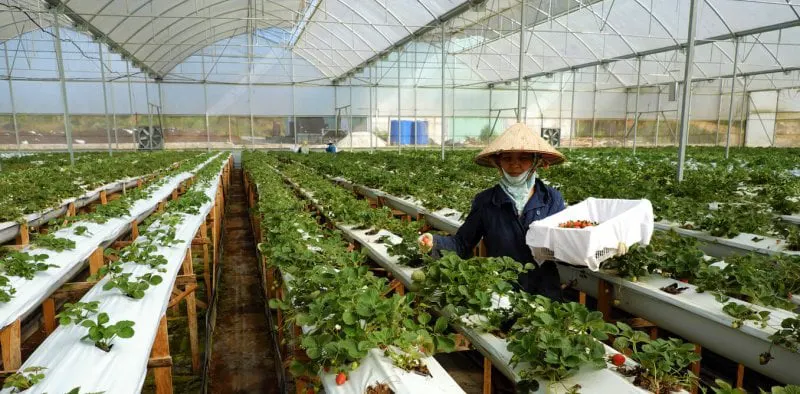New and emerging technologies
New and emerging technologies — combined with low-tech existing solutions — could pave the way to net-zero emissions agriculture


New and emerging technologies could pave the way to net-zero carbon emissions agriculture in the next two decades, according to a study published in the journal Proceedings of the National Academy of Sciences (PNAS) last month.
A host of new and emerging agricultural technologies lie on the horizon that could revolutionize how we think about food production, but a separate report published in the journal One Earth suggests that low-tech solutions could be just as effective.
The first phase would optimize current agri-food technology by employing digital agriculture to reduce the amount of nitrogen fertilizer used on crops by applying smaller amounts more precisely, a method that could cut emissions by 23%.
Next, existing technologies would be replaced with low-emission equivalents, including green methods for synthesizing fertilizers, and replacement of fossil fuel-powered farm equipment with electric equivalents run by renewables. This step could include selective breeding or genetic engineering for certain crop traits, such as improved nitrogen absorption through plant roots.
The final step in the agri-tech transition would involve a full redesign of the agricultural system…. An advanced agricultural system like this might reduce carbon emissions by more than 1,700 kilograms per hectare, according to the study.
Read the original post

 | Videos | More... |

Video: Nuclear energy will destroy us? Global warming is an existential threat? Chemicals are massacring bees? Donate to the Green Industrial Complex!
 | Bees & Pollinators | More... |

GLP podcast: Science journalism is a mess. Here’s how to fix it

Mosquito massacre: Can we safely tackle malaria with a CRISPR gene drive?

Are we facing an ‘Insect Apocalypse’ caused by ‘intensive, industrial’ farming and agricultural chemicals? The media say yes; Science says ‘no’
 | Infographics | More... |

Infographic: Global regulatory and health research agencies on whether glyphosate causes cancer
 | GMO FAQs | More... |

Why is there controversy over GMO foods but not GMO drugs?

How are GMOs labeled around the world?

How does genetic engineering differ from conventional breeding?
 | GLP Profiles | More... |

Alex Jones: Right-wing conspiracy theorist stokes fear of GMOs, pesticides to sell ‘health supplements’




 Viewpoint — Fact checking MAHA mythmakers: How wellness influencers and RFK, Jr. undermine American science and health
Viewpoint — Fact checking MAHA mythmakers: How wellness influencers and RFK, Jr. undermine American science and health Viewpoint: Video — Big Solar is gobbling up productive agricultural land and hurting farmers yet providing little energy or sustainabilty gains
Viewpoint: Video — Big Solar is gobbling up productive agricultural land and hurting farmers yet providing little energy or sustainabilty gains Trust issues: What happens when therapists use ChatGPT?
Trust issues: What happens when therapists use ChatGPT? Fighting deforestation with CO2: Biotechnology breakthrough creates sustainable palm oil alternative for cosmetics
Fighting deforestation with CO2: Biotechnology breakthrough creates sustainable palm oil alternative for cosmetics California, Washington, Oregon forge immunization alliance to safeguard vaccine access against federal undermining
California, Washington, Oregon forge immunization alliance to safeguard vaccine access against federal undermining 30-year-old tomato line shows genetic resistance to devastating virus
30-year-old tomato line shows genetic resistance to devastating virus The free-range chicken dilemma: Better for birds, but with substantial costs
The free-range chicken dilemma: Better for birds, but with substantial costs ‘You have to treat the brain first’: Rethinking chronic pain with Sanjay Gupta
‘You have to treat the brain first’: Rethinking chronic pain with Sanjay Gupta
